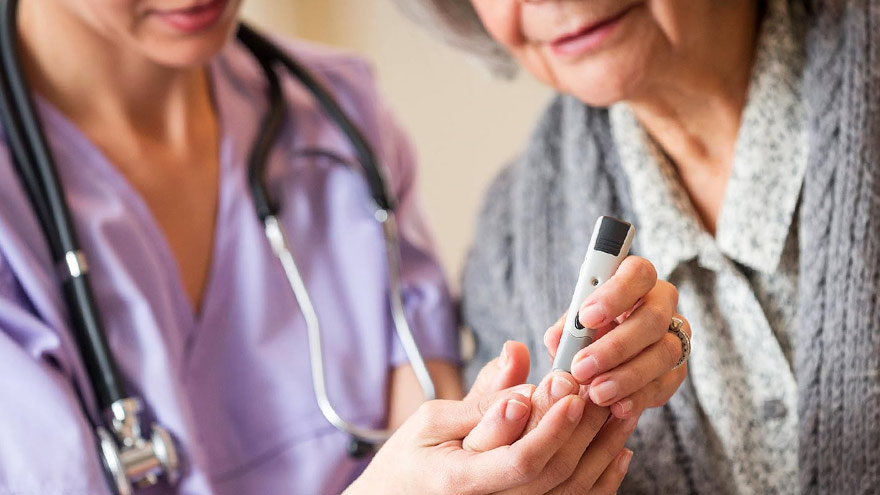Buscar
-
Avoid Heat Exhaustion With This Simple Checklist
Young children under 4 and adults over 65 are especially vulnerable to heat exhaustion. Avoid heat exhaustion this summer with some expert tips. Northern Nevada summers can be downright hot, and although the balmy temperatures can feel great, they may cause heat-related illness, also known as heat exhaustion. Infants and children under 4 and adults over 65 are particularly vulnerable to heat exhaustion because their bodies adjust to heat more slowly. Without proper intervention, heat exhaustion can progress to heat stroke, which can damage the brain and other vital organs and even cause death. The Warning Signs of Heat Exhaustion Heavy sweating Elevation of body temperature Paleness Muscle cramps Tiredness, weakness, dizziness Headache Fainting Nausea or vomiting Cool and moist skin Fast and weak pulse Fast and shallow breathing Heat stroke happens when the body’s temperature rises rapidly and the body loses its ability to sweat. The Symptoms of Heat Stroke Body temperatures rising to 106 degrees or higher within 10 to 15 minutes Red, hot and dry skin (no sweating) Rapid, strong pulse Throbbing headache Dizziness or nausea Prevention and Treatment Make sure your air conditioner works Stay indoors and drink plenty of fluids Limit strenuous outdoor activities to mornings and evenings Drink plenty of water throughout the day Avoid caffeine and alcohol Do outdoor activities in the shade and wear light, loose clothing Take plenty of breaks and drape a wet bandanna around your shoulders to cool down If you suspect you or someone else is headed toward heat exhaustion or heat stroke, call 911 immediately.
Read More About Avoid Heat Exhaustion With This Simple Checklist
-
3 datos importantes de atención médica para la generación milenial
Many millennials are fortunate to have good health, but it’s important to be prepared for your next doctor’s visit. Here are three things that millennials should stay on top of for tracking and maintaining their health. For many millennials, doctor visits and preventive healthcare fall by the wayside. Alison Lynch, MD, a family medicine provider with Renown Medical Group says there are a few key things you can do now to set yourself up for a healthy future. 1. Establish with a Primary Care Provider Millennials are more likely to go to urgent care or consult the internet when a healthcare issue arises. While these are helpful tools, here’s a better one: a primary care provider. The benefit of establishing with a primary care provider is that your medical records, history and a baseline for your health will be documented. That means that when a problem or question comes up, your doctor will already have helpful information on file and can help you navigate your needs. Having a primary care provider is often required for prescription refills and referrals to a specialist. By establishing now, you’ll be able to get what you need in the future much faster. Make an Appointment Today 2. Protect Yourself and Your Community There are a few vaccinations and screenings that Dr. Lynch recommends for millennials. Flu Shots: These are available every year and are recommended for protecting not only yourself against the flu but also others you may come into contact with. Flu shots are usually available from August through December through your healthcare provider, pharmacies and pop-up events. Tetanus or Tdap: Most people receive a tetanus shot as a child, but it’s recommended that everyone get a booster every 10 years. If you are overdue, talk to your primary care provider or pharmacist about getting updated. Pap smear: If you’re a woman, a pap smear is recommended every three years in your 20s and every five years in your 30s. HPV vaccine: This vaccine helps prevent the virus that causes cervical cancer as well as the majority of head and neck cancers and warts. The HPV vaccine is recommended for all genders up until age 45. STD screening: Consider an STI/STD screening if you’re sexually active.
-
5 maneras de prevenir la diabetes
November is National Diabetes Month, and with cases of the disease at an all-time high in the U.S., individuals must do everything they can to stay healthy. Learn more about diabetes prevention and also how to stop prediabetes in its tracks with these five helpful tips. Diabetes is a disease that is increasingly making its way into the public consciousness, and not in a good way. In fact, according to USA Today, diabetes has a greater health impact on Americans than heart disease, substance use disorder or COPD, with 30.3 million Americans diagnosed with the illness — and many more who are at risk for developing it. And those with prediabetes are at risk for developing type 2 diabetes in 10 years or less, according to the Mayo Clinic. The American Medical Association notes that 4 million U.S. adults have prediabetes. Check out the American Diabetes Association’s prediabetes risk test. The good news: There are ways to manage — and even reverse — prediabetes. Renown’s Certified Diabetes Educator Stephen Compston, RD, LD, CDE, shares five steps for managing blood sugar and also avoiding an eventual diagnosis. How to Prevent Diabetes Eat healthy foods. Plan meals that limit (not eliminate) foods that contain carbohydrates, which raise your blood sugar. Carbohydrates include starches, fruits, milk, yogurt, starchy vegetables (corn, peas, potatoes) and sweets. “Substitute more non-starchy vegetables into your meals to stay satisfied for fewer carbohydrates and calories,” Compston says. Exercise. Blood sugar is the body’s basic energy source. When you exercise, you are lowering your blood sugar. “People with prediabetes usually want to stay off of medication, so they must add something to their normal regimen that lowers blood sugar,” Compston says. “In this case, exercise is medicine.” Lose weight. A small decrease in your weight can drastically decrease your risk of developing diabetes in the future. The Diabetes Prevention Program study showed that a 7 percent decrease in body weight (14 pounds for a 200 pound person) can reduce a person’s risk of developing the disease by 58 percent. Get more rest. Studies link sleep issues to an increased risk of insulin resistance. It can also make it harder to lose weight. Thus, people that don’t get adequate sleep are at an increased risk for developing type 2 diabetes. See your doctor regularly. Schedule an appointment with your primary care provider at least once a year so you can track your health together. “A regular check-up and lab work can help identify what your blood sugars are doing so you and your doctor can develop a good plan for delaying the onset of diabetes,” Compston says.


